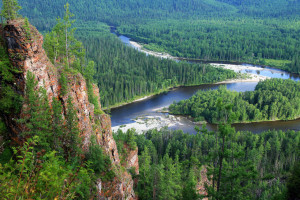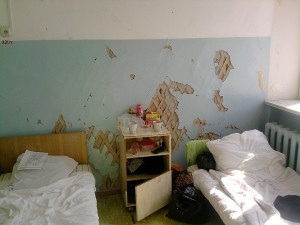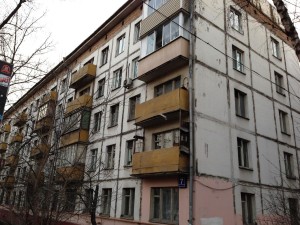Fellows of Salzburg Global’s latest Pathways to Peace Initiative outline recommendations on resolving Russia’s border disputes and reconstructing formerly occupied territories.
From October 18-21, 2023, Salzburg Global Seminar hosted an off-the-record, high-level dialogue, “Bear With Us: What Is To Be Done About Russia?” to explore scenarios and questions about what to do about Russia in the mid- to long-term.
Discussions focused on what is to be done about Russia and what options exist for managing and mitigating increasing uncertainty and danger exuding from Moscow. Fellows shared insights into political, economic, and security developments within and across Russia, as well as on the dynamics of other ongoing conflicts on Europe’s periphery. Discussions also looked beyond the current war on Ukraine to other regions affected by Russian encroachment as well as other historical conflicts where lessons can be drawn. The goal is to help develop new thinking and new approaches for dealing with the intractable problem: What is to be done about Russia?
At the end of the program, three working groups developed a number of recommendations. These recommendations do not necessarily represent a consensus among participating Fellows, and many Fellows who contributed to the recommendations preferred to remain anonymous. However, a number of Fellows did wish to publicly endorse these recommendations.
This working group of Salzburg Global Fellows has outlined recommendations on what needs to be done to resolve Russia’s border disputes and how international partners can coordinate economic assistance for the reconstruction of territories formerly occupied by Russia. Upon the precondition of the victory of Ukraine over Russia and the evacuation of Russian troops from Ukrainian territory, Fellows suggested a peace conference that addresses the return of territories occupied by Russia, the restitution of assets, Russian demilitarization, the payment of war reparations, and more.
Read the working group’s recommendations here.
Endorsements:
- Pavel Ivlev, Chairman, Committee for Russian Economic Freedom
- Anders Aslund, Senior Fellow, Stockholm Free World Forum
- Jaba Devdariani, Board Member UNAG / Soliciting editor Civil.ge, UN Association of Georgia / Civil.ge
- Donald Jensen, Adjunct Professor, Krieger School of Arts and Sciences, Johns Hopkins University
- Olena Perepelynska, Partner, Integrites
- Candace Rondeaux, Senior Director, Future Frontlines Program, New America
Source: Salzburg Global Seminar, an independent non-profit organization
https://www.salzburgglobal.org/news/latest-news/article/salzburg-global-fellows-recommendations-on-resolving-russias-border-disputes-and-reconstructing-formerly-occupied-territories




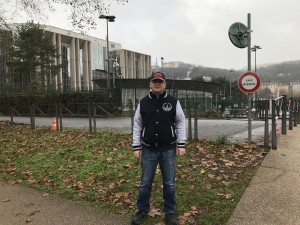

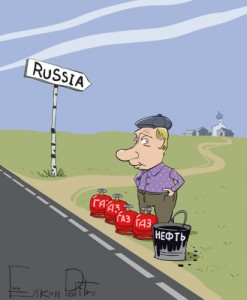 Everyone knows from school textbooks that Russia is extremely rich in mineral resources with the most valuable of them being oil and gas of course. Had Siberia not been rich in oil and gas, Putin could have probably been unable to stay in power that long, since without the “oil needle” hungry Russians would have told the usurper from the KGB to get lost a long time ago. However, he has been fortunate so far, and despite the fact that the importance of hydrocarbons as a source of energy has been slowly but steadily decreasing worldwide, the current Russian tsar still has enough oil revenues to provide for himself and his friends and to silence his electorate that has grown stupid from watching government-owned TV channels broadcasting state propaganda. Russia still has enough available stocks of mineral resources to maintain the status quo in the immediate and medium-term. As for the distant future, the Kremlin does not seem concerned about that at all. It is no surprise then that exploration activity is hardly being carried out in Russia, and geology as a science is slowly dying.
Everyone knows from school textbooks that Russia is extremely rich in mineral resources with the most valuable of them being oil and gas of course. Had Siberia not been rich in oil and gas, Putin could have probably been unable to stay in power that long, since without the “oil needle” hungry Russians would have told the usurper from the KGB to get lost a long time ago. However, he has been fortunate so far, and despite the fact that the importance of hydrocarbons as a source of energy has been slowly but steadily decreasing worldwide, the current Russian tsar still has enough oil revenues to provide for himself and his friends and to silence his electorate that has grown stupid from watching government-owned TV channels broadcasting state propaganda. Russia still has enough available stocks of mineral resources to maintain the status quo in the immediate and medium-term. As for the distant future, the Kremlin does not seem concerned about that at all. It is no surprise then that exploration activity is hardly being carried out in Russia, and geology as a science is slowly dying.